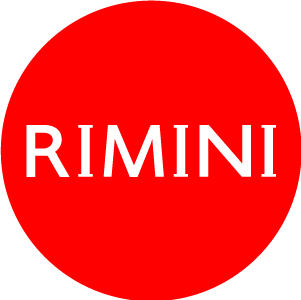Easter, like Christmas, are holidays that mark the rhythm of the year and bring with them customs and rites that help us relive the atmosphere of the holidays, even if this year we will once again be forced to spend the Easter holidays at home. and to postpone the traditional Easter Monday outing, which Rimini has always tried to keep alive in the wake of tradition.
The fulcrum of the religious feast is the Holy Week with the traditional Via Crucis on the Holy Friday. One of the most particular in Rimini is the one that winds along the steps leading to the Santuario delle Grazie on the Covignano hill. It is perhaps the oldest in the world, because the chronicles mention it since 1550.- In the fourteen chapels built along the slope, large terracotta panels (155 x 120 cm.), work by Carlo Sarti from Bologna, were kept. After their destruction during the war, they have been replaced by ceramics of the same size by the sculptor Elio Morri. Traditionally, on the evening of the Holy Friday, the procession started from via Covignano, at the foot of the large cross, and walked along the Via Crucis leading to the sanctuary.
Among the home-cooking traditions it is worth mentioning the rite of the blessed eggs. Symbol of life that is renewed, it is a tradition of the past which is kept alive today, generally by the grandmothers, who visit the churches in Rimini on the Saturday before Easter to have the boiled eggs blessed. On the Easter Sunday they will be eaten for breakfast together with the typical cake of Romagna, 'ciambella' or the Easter loaf.
The ‘ciambella’ (a long-shaped cake) is a very simple and tasty dessert that in Rimini and Romagna is eaten, as well as for breakfast, as a snack or at the end of a meal, accompanied by local wines such as Albana, Sangiovese, Cagnina or Passito wine. As a rule, the slice of the cake was soaked into the glass of wine, to taste the flavour better.
The ingredients of the ‘ciambella’ are those of the agricultural tradition: eggs, flour, sugar, milk, butter. Sometimes you may add pieces of chocolate or raisins and sprinkle the top of the cake with sugar grains.
Once, when there were only stoves and fireplaces, the Romagna ‘azdore’ (housewives) used to prepare the dough at home, which was spread on the trays and then brought to the village bakery to be cooked in the big oven. The women often found themselves waiting together and giving life to a kind of competition for the most beautiful or most fragrant ‘ciambella’.
The ‘pagnotta pasquale’ (Easter loaf), on the other hand, is a kind of sweet bread, born in Sarsina, but which immediately spread throughout the surrounding countryside. Its processing is more complex because it has to leaven for a whole night. During the Easter period it can still be found today in almost all the bakeries in the area. On Easter morning, the custom was to serve the Easter loaf, accompanied by blessed hard-boiled eggs and a few slices of local salami.
Another Rimini tradition is the out-of-town trip on Covignano hill: the so-called Somar Lungo. The name seems to derive from the habit of the inhabitants of Borgo Marina (one of the Rimini villages), who in the 19th century, on Easter Monday, used to ride donkeys and compete in a race to reach the Covignano hill from Rimini. The competition evoked the pilgrimage that sailors made in 1700 to go and ask the Madonna for help leaving their votive offerings. After the race everyone reached the Sanctuary delle Grazie on Covignano hill on the back of donkeys or on foot and spent the day on the meadows sharing the lunch contained in the "ligaza" (from the name of the handkerchief that contained the packed lunch), filled with roasted rabbit or lamb, piada, ciambella, hard-boiled eggs and wine.
In recent years this custom in honor of the Madonna delle Grazie has been revisited by the several associations of Rimini historic center and villages. The modern version is to go to Covignano by bicycle, departing from Marina Centro and riding through the old town till the nearby hill. It becomes an opportunity for an outdoor picnic with family or friends, and for taking part in numerous collateral activities.


